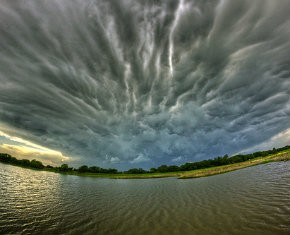Cosmic question: God in a world explained by science
Science has figured out many things that we once thought could be explained only by positing a supernatural intervention. We might still pray for rain, but we can trace the cause of thunder without invoking bowling gods. Sudden outbreaks of disease or a return to health were once so poorly understood that it seemed God must have been directly responsible for them. The question then arises: Is there still a place for God in a world explained by science—and if so, what is it?
The 19th-century British mathematician and philosopher Augustus De Morgan told a famous story (probably embellished a bit) in which Napoleon asks one of the leading scientists of the day, Pierre-Simon Laplace, why he has not mentioned the Creator in his new book, Systeme du Monde. Laplace answers, “I had no need of that hypothesis.”
In making that claim, Laplace was not advocating atheism. Rather, he was making a statement about the comprehensiveness of his scientific explanation. Laplace believed that he had gone beyond the remarkable achievements in mathematical physics that Isaac Newton had made in the previous century. Despite giving precise formulas to account for some empirical evidence—showing, for example, how gravity causes both cannonballs and the moon to trace out the paths they do—Newton was not able to account for other phenomena, like why the “fixed” stars don’t collapse together from the force of gravity. On such points, Newton could only say, “and then a miracle happens.” Laplace (and scientists generally) were not satisfied with retaining a miracle in scientific explanations. His equations and scientific explanations were better than Newton’s and didn’t need to appeal to supernatural intervention to make the system work.





